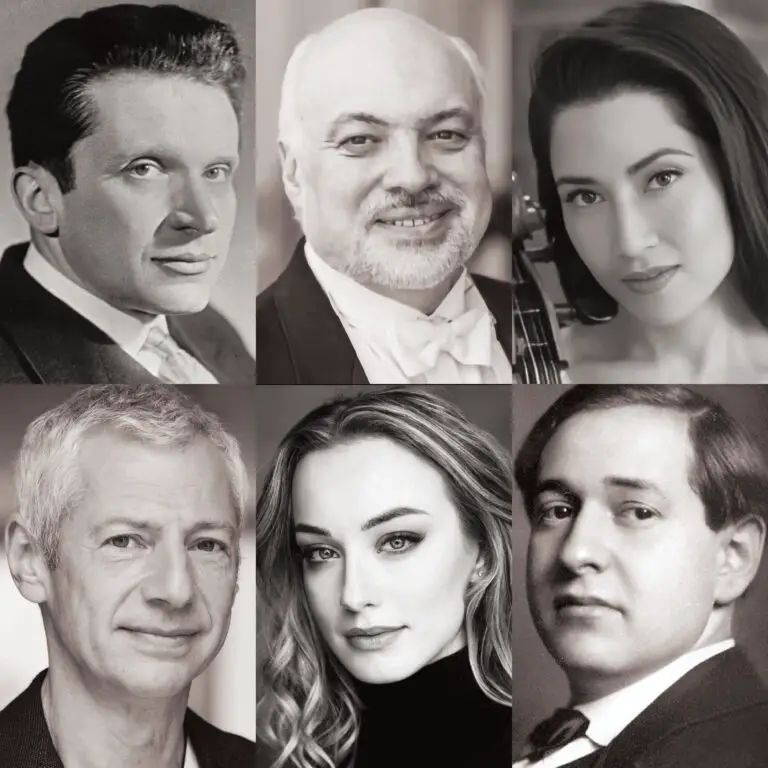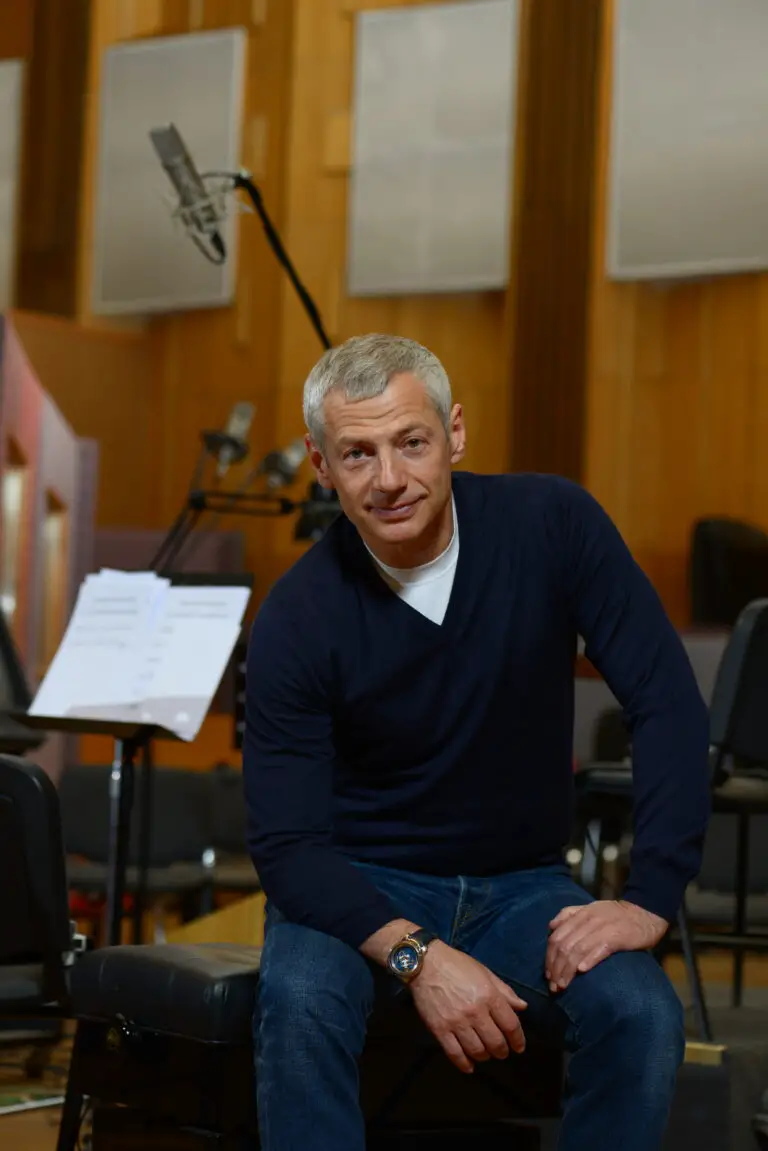On February 24th, the New York City Opera Orchestra presented Music of Survival: Works by Weinberg, Korngold, and Rovner at Carnegie Hall. This powerful program, conducted by Maestro Constantine Orbelian and featuring cellist Kristina Reiko Cooper and soprano Elizaveta Ulakhovich, explored the enduring legacies of composers whose work was overshadowed by the horrors of the Holocaust.

Constantine Orbelian’s Journey
Maestro Orbelian’s career has spanned continents, from his early debut as a piano prodigy with the San Francisco Symphony at age 11 to becoming the first American to serve as music director of a Russian orchestra. His deep understanding of orchestral texture stemmed from his formative years at the piano.
“The piano is really the only orchestral instrument. It’s like an orchestra in itself,” Orbelian explained. “If you’re playing the violin, you’re playing a solo line… whatever the instrument is, it’s not as unilaterally orchestral as a piano. So I always had the grasp of multi voices and multi usage of timbres and tones, bass lines and treble lines and internal voices. I always had that kind of in my DNA.”
This foundational understanding would prove crucial when, in 1989, an unexpected opportunity arose in the Soviet Union. Though not yet a conductor, Orbelian was offered leadership of the State Chamber Orchestra of the USSR. He began studying with renowned professor Ilya Musin, who helped shape his approach to orchestral leadership.
“He was a huge inspiration,” Orbelian recalled. “This man made me fall in love with orchestral music and orchestral sounds, and figured out how to pull out the right energy sounds, how to keep the tempi going… If you’re a pianist, you do them yourself. But if you’re a conductor, you have to preemptively tell the orchestra how to do it and show them with your hands.”
A Personal Connection to the Stories of Survival
Weinberg and Korngold, both Holocaust survivors, created music that reflected their personal struggles and showed the strength of the human spirit, mixing sorrow with beauty in a way that continued to resonate with audiences.
For Orbelian, the stories of composers like Weinberg and Korngold carried a deep personal resonance. “I happen to be Armenian,” he noted, “so the Armenians and the Jews suffered many of the same persecutions. The Armenians in a different way, but in a genocidal way back in 1915, so we have that commonality.”
This shared history of persecution influenced his interpretation of their work, though he emphasized that his primary draw to these composers was their genius. He had the privilege of knowing Weinberg personally in the early 1990s, visiting him regularly until the composer’s death in 1996. This connection gave him unique insight into the complex relationship between suffering and artistic expression in their work.
“Each one of these composers suffered in their own way,” Orbelian reflected, citing Tolstoy’s famous opening to Anna Karenina: “All happy families are alike; each unhappy family is unhappy in its own way.” He applied this principle to the composers’ experiences: “If somebody was able to leave, for instance, like Korngold, with most of his family intact, that’s one thing. Weinberg escaped from seeing his entire family annihilated – different type of suffering.”
A Program of Survival and Cinema
The evening’s program wove together themes of survival with the composers’ contributions to cinema. The concert opened with Weinberg’s suite from the 1956 film The Last Inch, followed by the New York premiere of his Fantasy for Cello and Orchestra. Korngold’s Cello Concerto, featured prominently in the 1946 film Deception, bridged the gap between serious concert music and Hollywood scores.
“Both Weinberg and Korngold became extremely well known film composers,” Orbelian noted, pointing out that while Korngold’s Hollywood work was widley recognized in the West, many people were unaware that Weinberg wrote the music for beloved Russian animated films, including their version of Winnie the Pooh.

The program concluded with the American premiere of Gennady Rovner’s Symphony Metamorphosis. Orbelian described it as “very movie like,” explaining that Rovner encourages listeners to “close your eyes and make up your own movie by listening to the music and what that evokes in your own brain and your own mind.”
The New York City Opera Orchestra: A Story of Resilience
The choice of the New York City Opera Orchestra for this program carried its own significance. “The title of the concert, ‘Musical Survival and Perseverance,’ also translates to New York City Opera,” Orbelian explained, “because it’s had its turbulent times. And I want to show everybody that we have survived.”
As both Executive Director and Music Director of New York City Opera, Orbelian saw this Carnegie Hall performance as a testament to the organization’s enduring legacy of innovation and inclusion. He proudly noted that in 1943, the company featured Camilla Williams as their first Black soprano in Madama Butterfly, predating similar milestones at other major opera houses by more than a decade.
“New York City Opera is not a fly-by-night organization,” Orbelian asserted. “We were giving people of any race, creed, or identity… whoever had a great voice, whoever was a wonderful conductor, the opportunity to perform.”
This concert at Carnegie Hall represented not just the survival of these composers’ works, but the resilience of the performing arts themselves. Through these pieces, the audience experienced both a testament to human perseverance and a celebration of artistic achievement that transcended historical trauma.
For information regarding tickets, visit the Carnegie Hall website here.


Comments are closed.